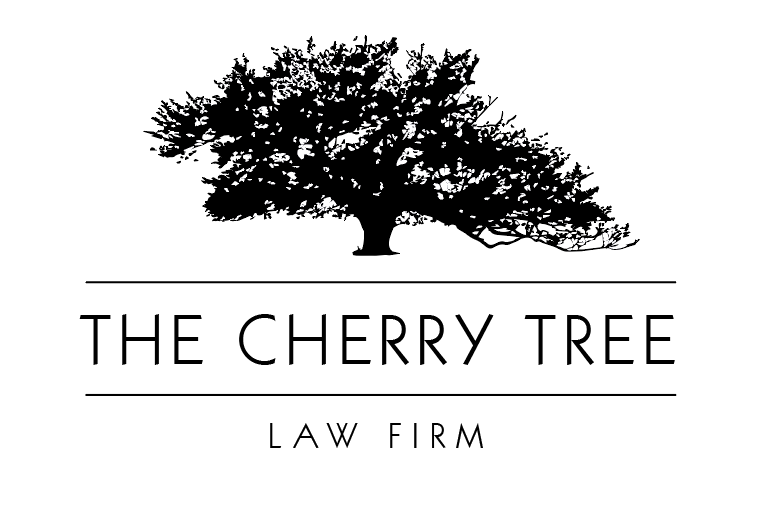Wills
A will passes your property to specific individuals after your death. It can provide specific gifts of personal items, as well as general gifts to groups of people. A simple will contains no trusts. The purpose of all wills is to give these gifts to your beneficiaries after probate is completed (all wills go through the probate process). Often, parents of minor or disabled children create a will with a trust which manages the children’s inheritance should the parents pass away. The trust can provide for heath, welfare, and education, as well as other needs. Without a trust, a minor’s inheritance will typically be held in a conservatorship, which is costly to establish, and the remaining inheritance is distributed in full to the minor when they reach the age of 18. Although many parents are in the process of building wealth, it is important to remember that the assets children inherit include: equity from the family home, proceeds from a life insurance policy, and settlements from wrongful death claims. Rates for wills are per document, please call for the current fee schedule.
Revocable Living Trusts
Revocable Living Trusts are effective and useful estate planning tools. Such trusts are used to avoid probate or to eliminate potential estate taxes. Revocable Living Trusts can be used to manage your property while you are living and therefore, are an effective way of planning for incapacity. They can hold property for minor children, ensuring that a trusted individual manages funds for the child until they are old enough to receive the resources.
Revocable Living Trusts can also be used to hold money for an individual who cannot or should not receive funds such as: disabled children, children with poor spending habits, or elderly/disabled relatives who wish to retain their healthcare or other government benefits and so cannot receive additional funds. However, Revocable Living Trusts are not for everyone. To help evaluate the benefits of a Revocable Living Trust, please make an appointment to speak with Kara Daley.
Durable Power of Attorney
Power of attorney gives a designated individual(s) the right to exercise powers that you already have. For example, you have the power to spend money, sell property, cash checks, withdraw money from the bank, and enter into contracts. Normally, no other person can exercise these legal rights for you. You have the right, however, to delegate your power to someone else to do those things for you.
You do this by giving that person a “power of attorney.” Granting someone a power of attorney does not limit your rights, it nearly extends your authority to the other person to act on your behalf. The person to whom you give these powers is called your “agent” or “attorney-in-fact.” A “durable” power of attorney grants your agent the power to act on your behalf, even if you should become incapacitated in the future. Because these documents can easily be abused, you should choose your agents with caution.
IRA Trusts
In 2001, certain IRS rulings opened the door to placement of IRA funds into trusts. Prior to this ruling, most professionals had advised against placing IRAs into trust because a trust lacked a life expectancy by which to calculate mandatory distribution of the IRA funds. Thus, the IRA fund tended to be distributed to the trust over a more accelerated period, causing a greater tax burden. Below, please find a general outline on the advantages and drawbacks of IRA trusts. Tax law changes rapidly, so please contact our office to ensure the most current application of these rules.
The IRA trust begins as a revocable trust during your lifetime. Upon your death, the trust provisions become irrevocable. There are three basics types of IRA trusts:
- Conduit Trust: This trust is literally a conduit for the IRA. Your IRA is required to pay the mandatory distributions to the trust, and the trustee then pays those distributions to your designated beneficiaries. The benefit of this type of trust is that your beneficiaries are not allowed to liquidate the IRA and must wait until the appropriate retirement age to receive their distributions. The IRS has specifically approved this type of trust.
- Accumulation Trust: This trust is designed to hold and accumulate all of the mandatory distributions from your IRA. The benefit to this type of trust is that your trustee determines whether and when to provide funds or assistance to your beneficiaries. If your beneficiary relies on government benefits for health care or other assistance, this trust can be set up as a special needs trust which will provide assistance to your beneficiary without eliminating their government benefits. The IRS has not specially approved this type of trust, though it is widely used by practitioners.
- Toggle Trust: This trust is a hybrid of the conduit and accumulation trusts. At your death, your trustee can choose whether a conduit or accumulation trust is most appropriate based upon the current law and the current situation of your beneficiary.
Special Needs Trusts
Many people need special care as the result of disability or age-related illness. Often, such individuals will rely on government benefits for their healthcare, housing, or community-based programs. The majority of public benefit programs are needs-based and will be suspended if the individual earns or possesses funds in excess of the program limits. This curtails a family’s ability to provide for a disabled individual through gifts or inheritance, and causes difficulties when a disabled individual receives a large amount of cash as the result of an inheritance, personal injury settlement, or back pay from government programs themselves.
However, current federal and state regulations allow funds to be held in a Special Needs Trust for the disabled person’s benefit. Because these funds belong to the trust and not the individual, they are not counted as part of an individual’s resource. Therefore, the individual continues to qualify for public assistance benefits. The creation of a Special Needs Trust provides financial security for the disabled individual, as well as long term management of assets. The trustee of the trust can act as an advocate for the individual by establishing a system of ongoing care and providing for the disabled person’s future wellbeing.
There are several different kinds of Special Needs Trusts, but in general, they can be broken down into two categories.
● First Party Funded Trusts: When a disabled person is the owner of the resources, federal and state regulations exert greater control over the types of trusts that can be established and how such trusts can function. A Payback Trust is a type of First Party Trust, often called an Under 65 Disability Trust. This trust is established, either through the court or under a power of attorney, and allows transfer of an individual’s funds from inheritance, settlements, or in some cases, “excessive” earned income to be transferred to this trust, maintaining program eligibility. As the name suggests, any funds remaining in this trust at the disabled person’s passing are first used to pay back certain public benefits programs.
● Third Party Funded Trusts: A family can create and fund a Special Needs Trust on their own. The family can tailor the trust terms as needed and appoint an appropriate trustee to safeguard the funds. With Third Party Trust, the family can also direct the disbursement of funds after the disabled person has passed away, leaving any remainder to the beneficiaries they choose.
Both types of trusts are managed by a trustee who spends the funds in accordance with the rules of the trust. These rules often prevent giving funds directly to the disabled individual and may place limits on providing food or shelter. However, funds can be used for supplemental needs, including travel, education, medical expenses not covered by public assistance programs (including dental work and vitamin supplements), pet expenses, and many other needs.
Other Special Needs Trusts include: pooled trusts and Income Cap Trusts which follow different guidelines. Because individual circumstances vary and because Special Needs Trusts are complex, it is prudent to speak with an attorney to ensure that your needs and the needs of your family will be properly addressed. We are happy to discuss any questions you may have.
IRS Circular 230: Under U.S. Treasury regulations we are required to inform you that any tax advice contained in this communication (including any attachment) is not intended to be used, and cannot be used, to avoid penalties imposed under the Internal Revenue Code.


